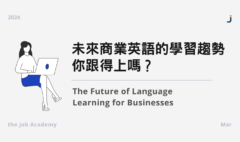Unlocking Success
2023-02-23 2023-10-12 16:14Unlocking Success
What if I told you I held one of the keys to unlocking your success in business and that unlocking success with this key would take work, but that the average person in the business world today has access to the key. With so much inequality in the world, you might question my statement. I believe that some of the most important keys to unlocking your success aren’t necessarily the most difficult ones to master, but often they are the keys that take consistency day in and day out to commit as a skill. The key I’m presenting is “vocabulary.”
If you are non-native English-speaker and working in business, expanding your vocabulary is crucial to feeling confident and being successful in your career. The ability to communicate effectively in English, especially in international business settings, can make or break important business deals and partnerships. In this article, we’ll explore why expanding your English vocabulary is so important and share the stories of two famous businesspeople who credit their success to their ability to communicate in English.
The Importance of Expanding Your English Vocabulary
English is the lingua franca (common language) of international business, and having a strong command of the language can open doors to new opportunities and help build relationships with clients and colleagues around the world. A robust vocabulary is critical to effective communication, both in writing and in conversation. Without a varied vocabulary, it can be difficult to convey the right tone or meaning, and important details can be lost in translation.
Additionally, a limited vocabulary can make it challenging to express yourself confidently in business settings, which can negatively impact your credibility and influence. Conversely, the ability to express yourself clearly and persuasively can earn respect and admiration from others in the business world.
The Stories of Two Famous Businesspeople
There are countless examples of successful businesspeople who have attributed their success to their strong command of the English language. Here are two notable examples:
Elon Musk
Elon Musk, the billionaire entrepreneur and CEO of Tesla and SpaceX, is originally from South Africa and is a non-native English speaker. In an interview with Joe Rogan, Musk shared that he taught himself English by reading books and watching movies. He credits his success in the tech industry, which relies heavily on English as the language of communication, to his expansive vocabulary.
In Musk’s own words, “I think it’s important to have a good vocabulary – if you can’t express yourself, you can’t achieve much. Being able to communicate effectively is one of the most important things in business.”
Indra Nooyi
Indra Nooyi, the former CEO of PepsiCo, is a native of India and a non-native English speaker. Nooyi has spoken openly about the challenges she faced in learning English as a second language, but also credits her ability to speak English fluently for much of her success in the business world.
In an interview with CNBC, Nooyi said, “I remember the first time I walked into a board meeting…I had to learn how to read a balance sheet, how to read an income statement, and how to communicate in English, all at the same time. But I did it, and I realized that the more fluent I became in English, the more confident I felt. That confidence is what helped me progress in my career.”
Consistency, Resources, and Grit
Expanding one’s English vocabulary is an essential component of success in international business. A robust vocabulary helps build credibility, influence, and fosters confidence in communication, both in writing and in conversation. The stories of Elon Musk and Indra Nooyi, both non-native English speakers, illustrate the power of language skills in achieving success in the business world.
Just as Musk and Nooyi showed true “grit” (deep determination) in their attempt to expand their vocabulary, as you continue to develop your career as a businessperson, determine to make vocabulary expansion a priority. Reading widely, listening to English podcasts or audiobooks, and regularly using vocabulary-building apps and websites can help you quickly develop your skills in this critical area, but it needs to happen consistently or you won’t make the progress you desire. By doing so, you can increase your confidence and effectiveness in the business world and open doors to new opportunities and career advancement.
Kelly Seely (PhD, TEFL)
I coach committed Mandarin-speaking business professionals to improve their job performance with advanced English communication and presentation skills









